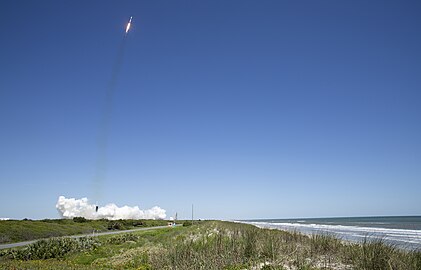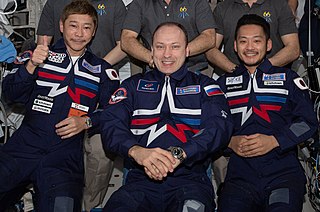
Space tourism is human space travel for recreational purposes. There are several different types of space tourism, including orbital, suborbital and lunar space tourism.

Michael López-Alegría is an astronaut, test pilot and commercial astronaut with dual nationality, American and Spanish; a veteran of three Space Shuttle missions and one International Space Station mission. He is known for having performed ten spacewalks so far in his career, presently holding the second longest all-time EVA duration record and having the fifth-longest spaceflight of any American at the length of 215 days; this time was spent on board the ISS from September 18, 2006, to April 21, 2007. López-Alegría commanded Axiom-1, the first ever all-private team of commercial astronaut mission to the International Space Station, which launched on April 8, 2022, and spent just over 17 days in Earth's orbit.

Peggy Annette Whitson is an American biochemistry researcher, retired NASA astronaut, former NASA Chief Astronaut, and an active Axiom Space astronaut. Whitson has a total of 675 days in space, more than any other American or woman.

The International Space Station programme is tied together by a complex set of legal, political and financial agreements between the fifteen nations involved in the project, governing ownership of the various components, rights to crewing and utilisation, and responsibilities for crew rotation and resupply of the International Space Station. It was conceived in September 1993 by the United States and Russia after 1980s plans for separate American (Freedom) and Soviet (Mir-2) space stations failed due to budgetary reasons. These agreements tie together the five space agencies and their respective International Space Station programmes and govern how they interact with each other on a daily basis to maintain station operations, from traffic control of spacecraft to and from the station, to utilisation of space and crew time. In March 2010, the International Space Station Program Managers from each of the five partner agencies were presented with Aviation Week's Laureate Award in the Space category, and the ISS programme was awarded the 2009 Collier Trophy.
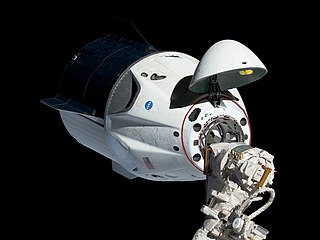
Dragon 2 is a class of partially reusable spacecraft developed and manufactured by American aerospace manufacturer SpaceX, primarily for flights to the International Space Station (ISS). SpaceX also launches private missions, such as Inspiration4 and Axiom Space Missions. There are two variants of the Dragon spacecraft: Crew Dragon, a spacecraft capable of ferrying four crewmembers, and Cargo Dragon, a replacement for the original Dragon 1 used to carry freight to and from space. The spacecraft consists of a reusable space capsule and an expendable trunk module. The spacecraft launches atop a Falcon 9 Block 5 rocket and the capsule returns to Earth through splashdown.
Axiom Space, Inc., also known as Axiom Space, is an American privately funded space infrastructure developer headquartered in Houston, Texas.

Soyuz MS-20 was a Russian Soyuz spaceflight to the International Space Station (ISS) on 8–20 December 2021. Unlike previous Soyuz flights to the ISS, Soyuz MS-20 did not deliver any crew members for an ISS Expedition or serve as a lifeboat for any crew members on board the station. Instead, it was commanded by a single professional cosmonaut and carried two space tourists represented by company Space Adventures, which had executed eight space tourism missions to the ISS in 2001–9. The flight to reach the ISS took six hours.

Crew Dragon Endeavour is a Crew Dragon space capsule manufactured and operated by SpaceX and used by NASA's Commercial Crew Program. As of 2023 it has successfully completed four crewed missions to the International Space Station (ISS). It was first launched into orbit atop a Falcon 9 rocket on 30 May 2020 and successfully docked to the International Space Station (ISS) as part of the Crew Dragon Demo-2 mission. This was the first crewed flight test of a Dragon capsule, carrying Doug Hurley and Bob Behnken on first crewed orbital spaceflight from the United States since STS-135 in July 2011 and the first crewed orbital spaceflight by a private company. On 2 August 2020 it returned to Earth. The spacecraft was named by Hurley and Behnken after the Space ShuttleEndeavour, aboard which they first flew into space during the STS-127 and STS-123 missions, respectively. The name Endeavour is also shared by the command module of Apollo 15. The spacecraft's second mission, Crew-2, ended 8 November 2021 after having spent almost 200 days in orbit. Crew Dragon Endeavour set the record for the longest spaceflight by a U.S. crew vehicle previously set by her sibling Crew Dragon Resilience on 2 May 2021. Collectively, Endeavour has spent over 450 days in orbit the most time so far by a crewed spacecraft, surpassing Space Shuttle Discovery.

Axiom Orbital Segment or Axiom Segment are the planned modular components of the International Space Station (ISS) designed by Axiom Space for commercial space activities. Axiom Space gained initial NASA approval for the venture in January 2020. Axiom Space was later awarded the contract by NASA on February 28, 2020. This orbital station will be separated from the ISS to become a modular space station, Axiom Station, after the ISS is decommissioned.

Expedition 67 was the 67th long-duration expedition to the International Space Station. The expedition began upon the departure of Soyuz MS-19 on 30 March 2022, with NASA astronaut Thomas Marshburn taking over as ISS commander. Initially, the expedition consisted of Marshburn and his three SpaceX Crew-3 crewmates Raja Chari, Kayla Barron and Matthias Maurer, as well as Roscosmos cosmonauts Oleg Artemyev, Denis Matveev and Sergey Korsakov, who launched aboard Soyuz MS-21 on March 18, 2022 and transferred from Expedition 66 alongside the Crew-3 astronauts. However, continued international collaboration has been thrown into doubt by the 2022 Russian invasion of Ukraine and related sanctions on Russia.
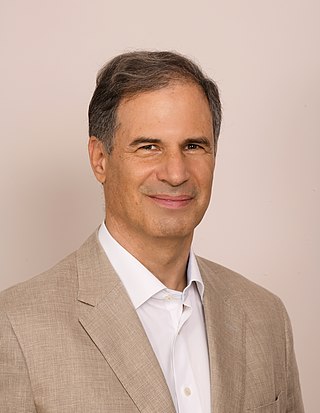
Eytan Meir Stibbe is an Israeli former fighter pilot, businessman and commercial astronaut.
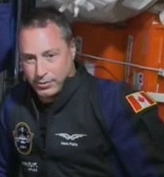
Mark Pathy is a Canadian businessman, philanthropist and commercial astronaut. He is the CEO of Mavrik, a privately owned Canadian investment company. He is also the chairman of Stingray Group and the former co-CEO of Fednav, a private shipping company co-founded by his great-uncle, Ernest Pathy, who was an immigrant from Hungary.

SpaceX Crew-4 was the Crew Dragon's fourth NASA Commercial Crew operational flight, and its seventh overall crewed orbital flight. The mission launched on 27 April 2022 at 07:52 UTC before docking with the International Space Station (ISS) at 23:37 UTC. It followed shortly after the private Axiom 1 mission to the ISS earlier in the month utilizing SpaceX hardware. Three American (NASA) astronauts and one European (ESA) astronaut were on board the mission.

Axiom Mission 2 was a private crewed spaceflight operated by Axiom Space. Ax-2 was launched on 21 May 2023 on a SpaceX Falcon 9, successfully docking with the International Space Station (ISS)on 22 May. After eight days docked to the ISS, the Dragon crew capsule Freedom undocked and returned to Earth twelve hours later.

SpaceX Crew-6 was the sixth crewed operational NASA Commercial Crew flight of a Crew Dragon spacecraft, and the ninth overall crewed orbital flight. The mission launched on 2 March 2023 at 05:34:14 UTC, and it successfully docked to the International Space Station (ISS) on 3 March 2023 at 06:40 UTC. The Crew-6 mission transported four crew members to the International Space Station (ISS). Two NASA astronauts, a United Arab Emirates astronaut, and a Russian cosmonaut were assigned to the mission. The two NASA astronauts are Stephen Bowen and Warren Hoburg. The cosmonaut, Andrey Fedyaev, was reassigned from Soyuz MS-23. Sultan Al Neyadi was the Commander of the United Arab Emirates' mission on the flight.

Crew Dragon Freedom is a Crew Dragon spacecraft manufactured and operated by SpaceX and used by NASA's Commercial Crew Program. On 27 April 2022, it was launched to transport four personnel to the International Space Station as part of the SpaceX Crew-4 mission, which was a part of ISS Expedition 67.

Axiom Mission 3 is a private spaceflight to the International Space Station. The flight launched on 18 January 2024, and is expected to last about 14 days. It is operated by Axiom Space and uses a Crew Dragon spacecraft.

Expedition 70 is the 70th long-duration expedition to the International Space Station. The expedition began with the departure of Soyuz MS-23 on 27 September 2023, with Danish astronaut Andreas Mogensen taking over the ISS command from Expedition 69 cosmonaut Sergey Prokopyev. It will end with the departure of Soyuz MS-24, carrying NASA astronaut Loral O'Hara and a visiting non-mission crew in March 2024.





